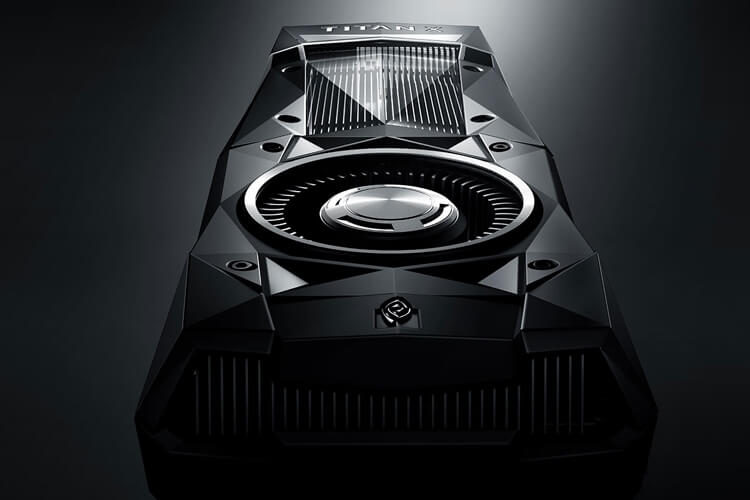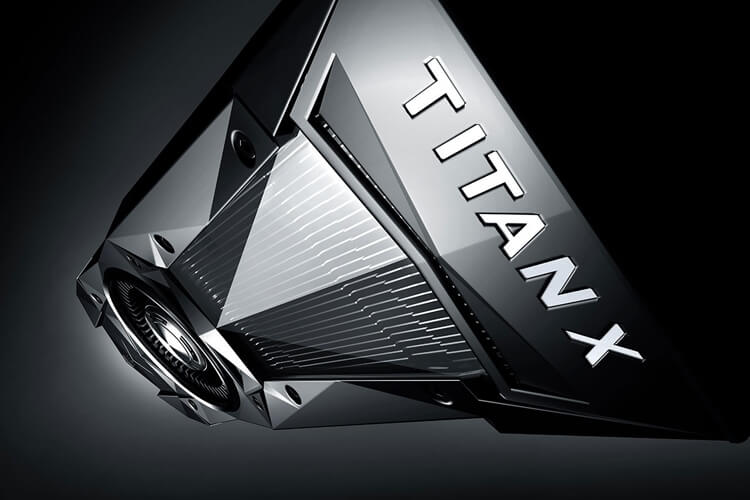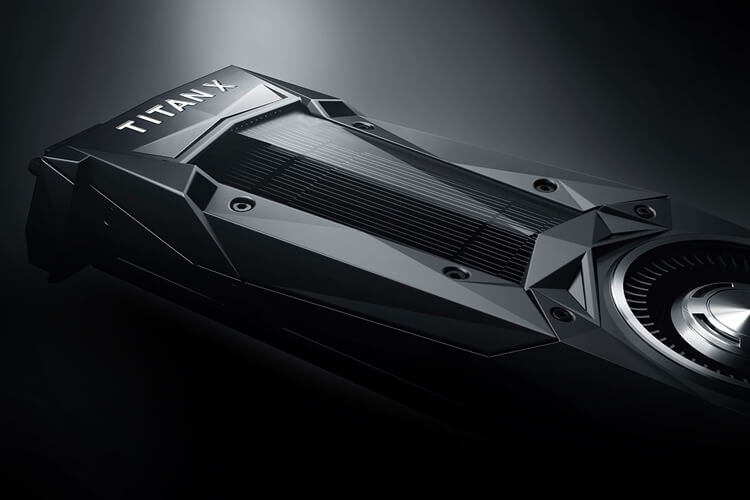All About the New NVIDIA TITAN X: Titanium Now On Pascal
On July 21, at an event at Stanford University, Ren-Sun Huang presented a new flagship on the GP102 chip. Now TITAN has appeared on Pascal and in this article we will tell you all the relevant information about this video card and why is it needed at all?
Appearance and cooling

Specifications

The new card, like other representatives of the Pascal architecture (GTX 1060/1070/1080), is built on a new 16 nm FinFET process technology and supports all the new technologies of this architecture: GPU Boost 3.0, NVIDIA Ansel, NVIDIA VRWorks Audio (all information is available on the links). the new model has got SLI support using new HB SLI bridges, although nothing is known about the maximum number of cards in one bundle. There are many questions to the name: “Why hasn’t it changed? How has it not changed? The old model was called NVIDIA GeForce GTX TITANX, and the new one is simply NVIDIA TITAN X.
We have prepared a table for you to compare the new single-chip flagship with other Pascal representatives.
Comparison Chart for NVIDIA Titan XGTX 1060GTX 1070GTX 1080GTX TITAN XTITAN X
| Chip | GP106 | GP104 | GP104 | GM200 | GP102 |
| Technical process | 16 Nm FinFET | 16 Nm FinFET | 16 Nm FinFET | 28 Nm | 16 Nm FinFET |
| Transistors, billion | 4.4 | 7.2 | 7.2 | 8 | 12 |
| Stream Processors | 1280 | 1920 | 2560 | 3072 | 3584 |
| Core frequency, MHz | 1506 (1708) | 1507 (1685) | 1607 (1733) | 1000 (1075) | 1417 (1531) |
| Memory | 6 GB GDDR5 | 8 GB GDDR5 | 8 GB GDDR5X | 12 GB GDDR5 | 12 GB GDDR5X |
| Bus width, bit | 192 | 256 | 256 | 384 | 384 |
| Effective memory frequency, MHz | 8000 | 8000 | 10000 | 7012 | 10000 |
| Memory bandwidth, GB / s | 192 | 256 | 320 | 336 | 480 |
| Nutrition | 6 pin | 8 pin | 8 pin | 6 + 8 pin | 6 + 8 pin |
| TDP, W | 120 | 150 | 180 | 250 | 250 |
| Performance, GFLOPS (FP32) | 3855 | 5783 | 8228 | 6144 | 10257 |
| Price at the time of release | 250 $ | 380 $ | 600 $ | 1000 $ | 1200 $ |
Positioning and performance

Well, how else can TITAN be positioned? It will undoubtedly be the fastest single-chip graphics card on the market. But the Titans did not have an easy fate: all the first models were positioned as video cards for computing, but at the same time suitable for games. Their price was incredible and buying them just for games was a great luxury. On the other hand, NVIDIA GeForce GTX TITAN X (previous model) has lost its ability in calculations, the speed in calculations of double precision (FP64) has dropped significantly. It began to be positioned only as a gaming video card.
And now we come to the object of our material. This video card is positioned as a card for professional computing. We do not know about the results in FP64, and this is a very important indicator for calculations. In this case, it should be compared with the AMD Radeon Pro Duo graphics card, which has two Fiji XT chips on board. Its performance in FP32 is as much as 16384 GFLOPS, which is a better offer at a price of $ 1500. In addition, AMD cards have always been better at computing due to the larger number of stream processors and good OpenCL support.
I think that when the time comes, we will find out why this video card entered the market. But there is an option that this is all due to the small percentage of the output of large crystals on the new technical process.
NVIDIA said the new card will be 60% faster than the previous TITAN, which is in line with the FP32 performance data.
Tests
At the moment, the card has already appeared on sale and the first tests have appeared on the network. You can check out techpowerup’s text review. We summarized the data on the network and came to the conclusion that the new model without overclocking shows the following advantage over the GTX 1080:
- At 1920 x 1080 ~ 20%
- 2560 x 1440 ~ 25%
- At 3840 x 2160 ~ 30%
As for overclocking, due to the peculiarities of GPU Boost 3.0, the maximum frequency may exceed the specified in the technical specifications. The gain for different editions reached 150-230 MHz under the same conditions compared to the state where there was no manual overclocking. The maximum frequency can go up to 1900 MHz. The situation with memory is as follows: overclocking ranged from 10112 MHz to 11240 MHz for different editions. The increase from overclocking reaches 19% (maximum), if at the very beginning the maximum temperature is not raised, the power is not increased and the fans are not accelerated to 100%.
Which processor will NVIDIA TITIAN X drive?
Well, I think that if you decide to spend as much as $ 1200 on a video card, then it’s stupid to skimp on the processor. In general, we have written an article on our website about the uncoverability of the processor. No AMD processor is suitable for such a video card. We believe that for an adapter of this level, you need a processor of the level of Intel Core i7-6700K overclocked and above.
Prices and release date
The video card will go on sale on August 2 at a suggested price of $ 1200.
And you write in the comments, how do you like such a beast, is it worth the money and your guess about its purpose?

